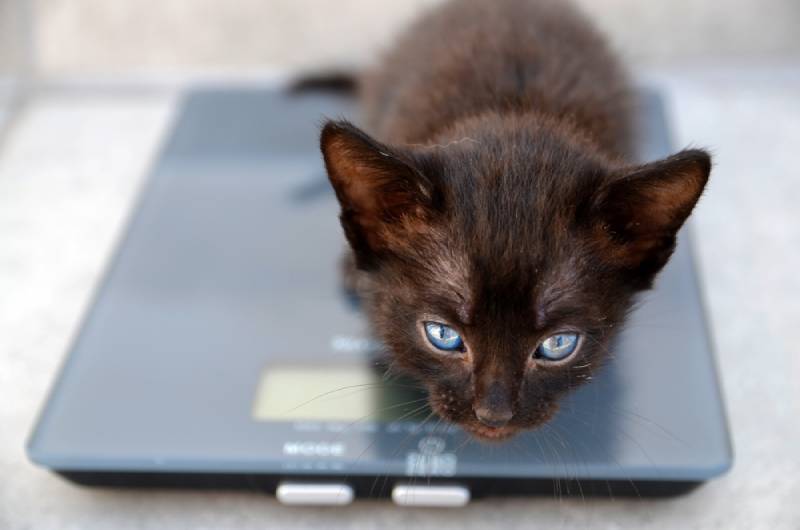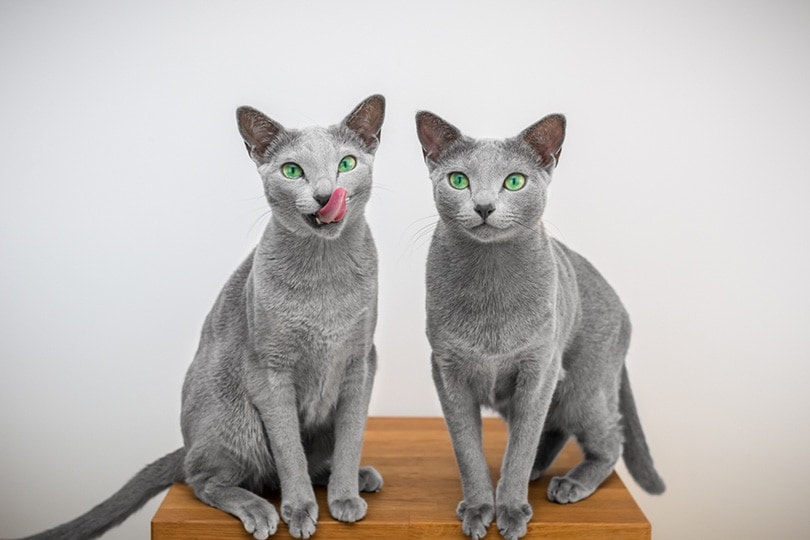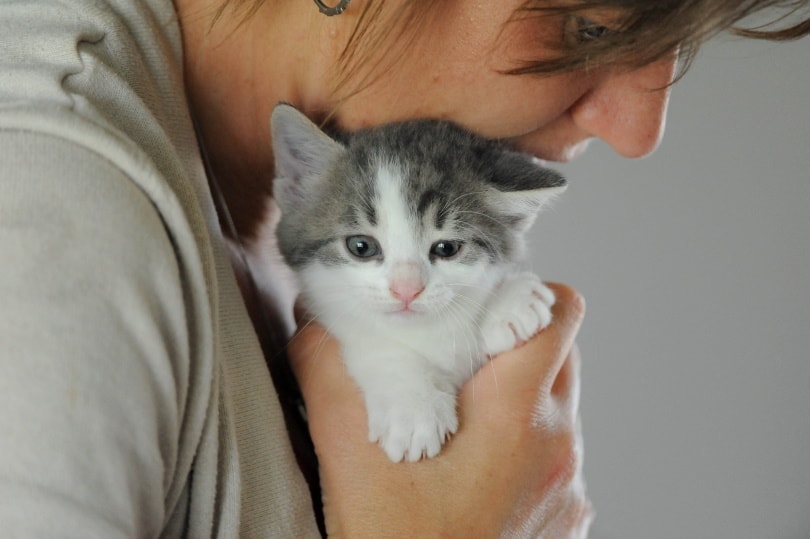Can Cats Eat Mustard? Vet-Reviewed Health & Safety Guide

Updated on

If you are a cat owner, you have probably experienced your cat begging for food while you eat. Mustard is a very common ingredient in many foods, it is also a very popular condiment used for burgers, hotdogs, and sandwiches. It is often used as a dressing, sauce, and marinade for various dishes. If you find your cat begging and waiting for you to give them some food, is it safe for you to feed them mustard? Is mustard safe for cats?
Although mustard has a lot of health benefits for humans, the answer is no. Cats should not eat mustard as it can cause some gastrointestinal complications which may lead to vomiting and diarrhea. Here, we discuss why mustard is not recommended for cats.
Why Is Mustard Bad for Cats?
The ingredients of mustard have many health benefits to humans, but this cannot be applied to cats. Looking at the ingredients of this condiment, the primary ingredient of mustard is the mustard seed. The seed itself can cause gastroenteritis that can lead to vomiting or diarrhea. Aside from the mustard seed, commercial mustard products also contain other ingredients that are also not recommended for cat consumption, such as salt, alcohol, flavorings, and various spices to name a few.
It is also important to note that cats are obligate carnivores, meaning they live almost exclusively on meat. Although this does not mean that cats are not allowed to eat occasional veggies, mustard as a food will contain very little nutritional value for cats.
Although mustard is rich in vitamins, this should not be considered a reason why you can feed mustard to your cat. Cats’ digestive systems are different compared to humans when breaking down greens. As a source of vitamins, there are other alternative sources that can be considered, such as supplements specifically for cats.
Despite mustard causing digestive complications to cats, it is not considered toxic or poisonous to felines. But it is still recommended that cats are not fed mustard to prevent any digestive upset.
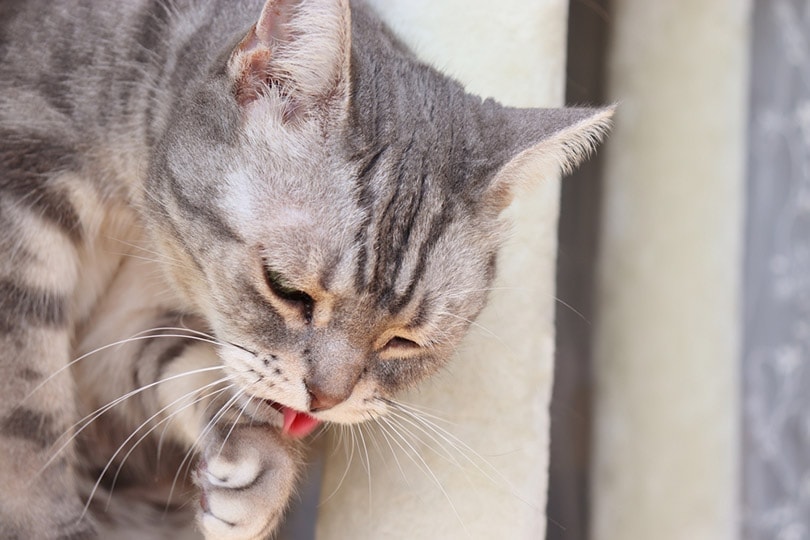
Can Cats Eat Mustard Greens?
Mustard greens are the leaves of the mustard plant, Brassica juncea. Mustard greens are a common ingredient used in many different cuisines across the world. Mustard greens are not toxic to cats, but they can cause an upset stomach and are bitter, so it isn’t recommended to feed them.
Cats are carnivores and have different enzymes for breaking down and digesting food, which may hinder a cat from properly digesting mustard greens. Mustard greens contain oxalates which can form bladder and kidney stones if ingested in large amounts, so mustard greens should only be given to cats in small amounts and on very rare occasions.
Can Cats Eat Yellow Mustard?
Yellow mustard is considered the mildest mustard commercially available. Like mustard greens, this cannot be fed to cats as it may cause indigestion that can lead to diarrhea and vomiting. Various ingredients can also contribute to gastric distress such as salt, vinegar, and various spices, to name a few.
Yellow mustard’s main ingredient is the yellow mustard seed and it is not considered poisonous or toxic to cats, but because of the effects it can have on a feline’s digestive system, it is best to avoid it.
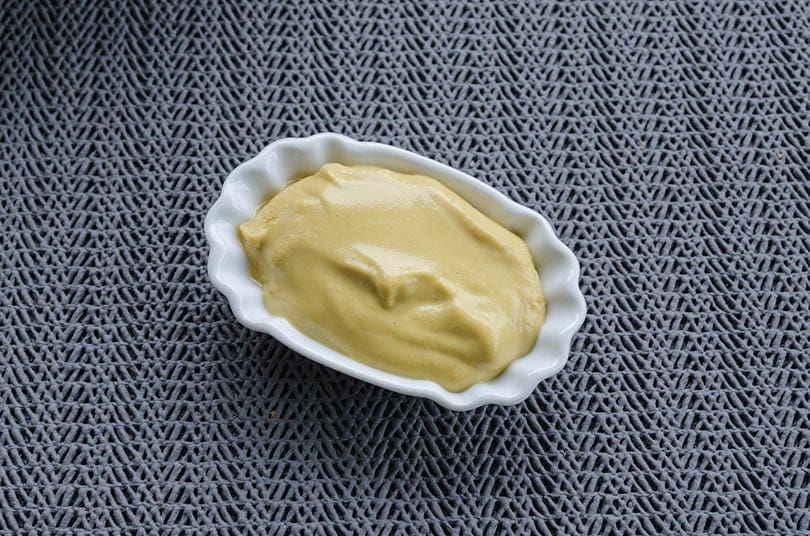
What Should You Do if Your Cat Eats Mustard?
If your cat consumes or licks a small amount of mustard, chances are it won’t really affect your cat too badly. But should you find out that your cat has consumed quite an amount of mustard, then you should monitor her closely for a few hours.
Observe your cat for any strange behaviors or signs of distress. If your cat is generally playful, you might want to observe for signs such as loss of energy or apparent discomfort. Observe for instances of vomiting, diarrhea, and discomfort in the mouth.
Cats are independent in nature, and they tend to isolate themselves. Because of this, it is recommended you keep a close eye on them as they can be experiencing these symptoms in isolation.
Should your cat consume mustard, it is important to ensure that your cat stays hydrated and continues eating as usual. Although ensuring your cat drinks adequate water may be a challenging task, drinking water is important to prevent her from dehydration when experiencing gastrointestinal distress and discomfort.
You can also bring your cat to your local veterinary clinic for professional help should symptoms be too severe and if they last for more than 24 hours.
Final Thoughts
Mustard is a common ingredient found in various cuisines and dishes around the world. Although this has many health benefits to humans, mustard must be avoided for cats as they are unable to digest mustard properly and it may lead to various digestive issues such as vomiting and diarrhea.
Small amounts of mustard at a time should not be harmful to cats. But it is important to look for signs of distress and ensure that your cat is well hydrated if they consume mustard. To prevent any further complications for your feline, try to avoid mustard entirely.
See also:
Featured Image Credit: Aleks shutter, Shutterstock



